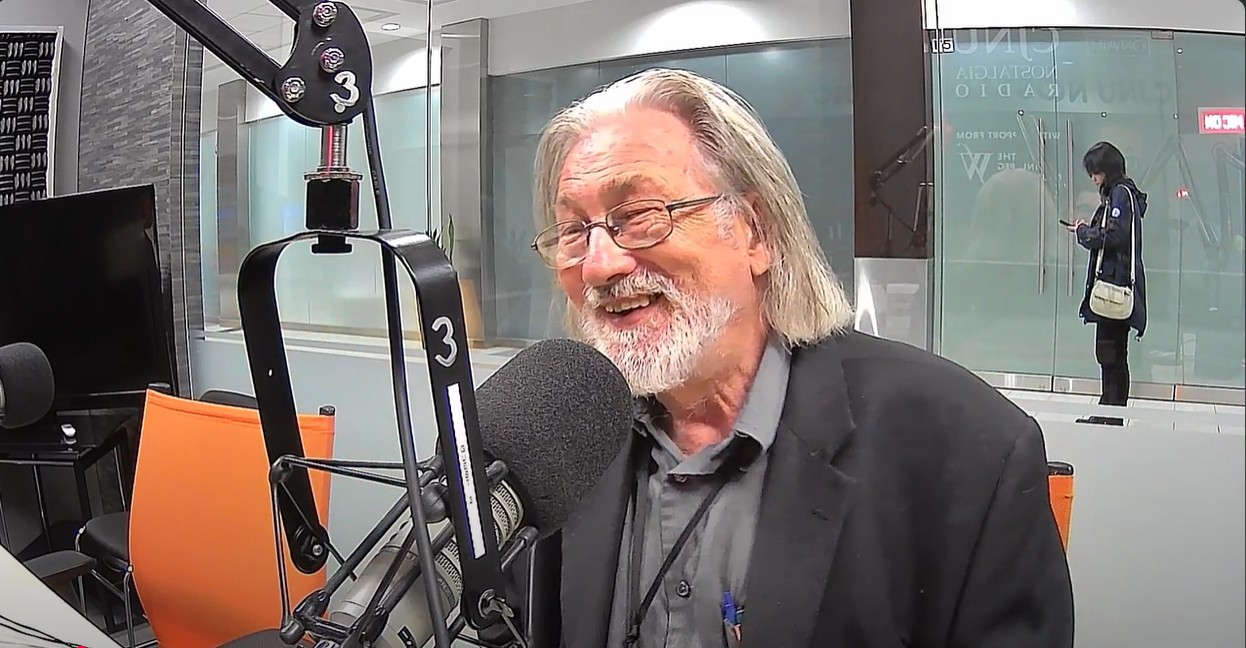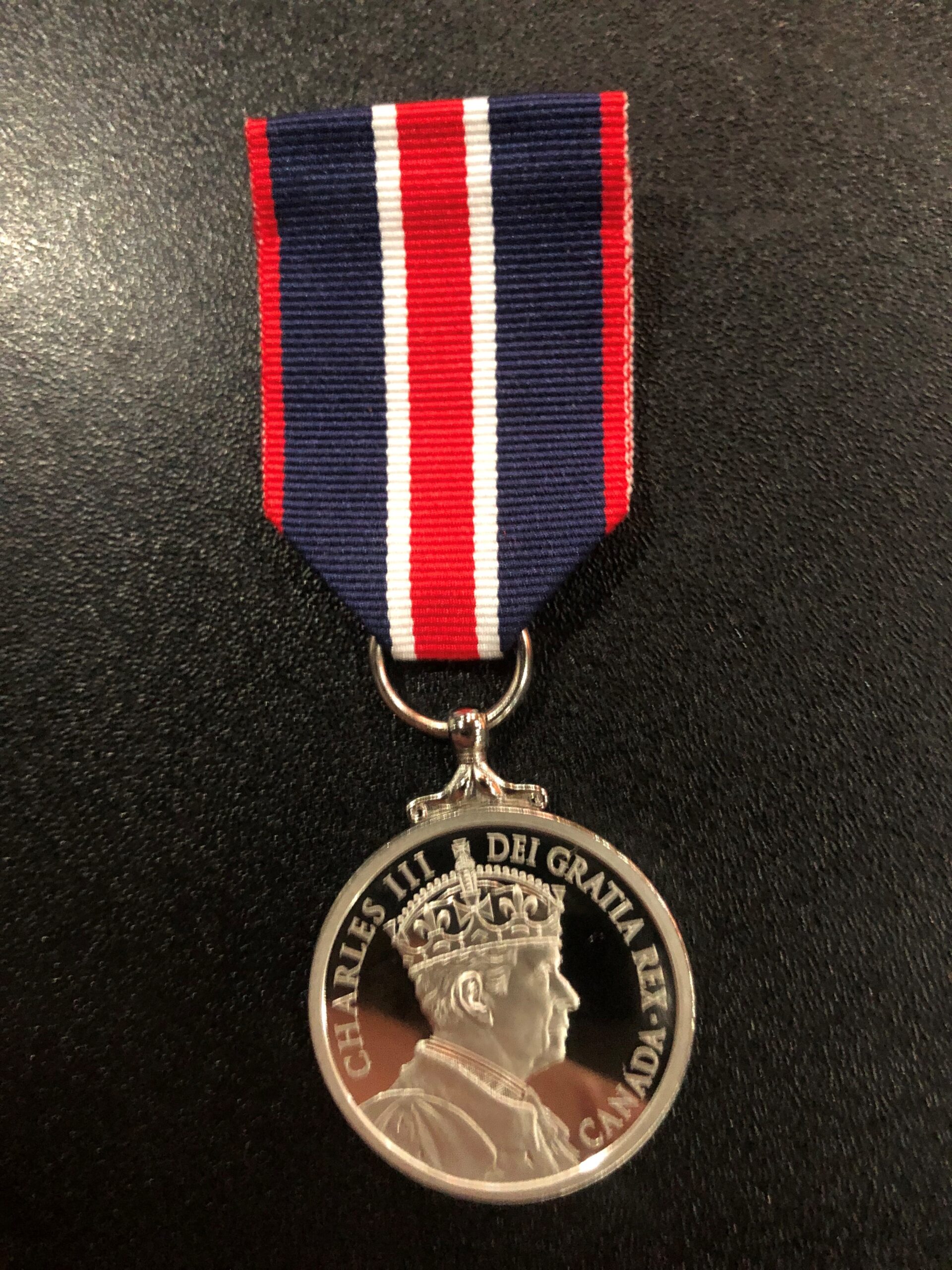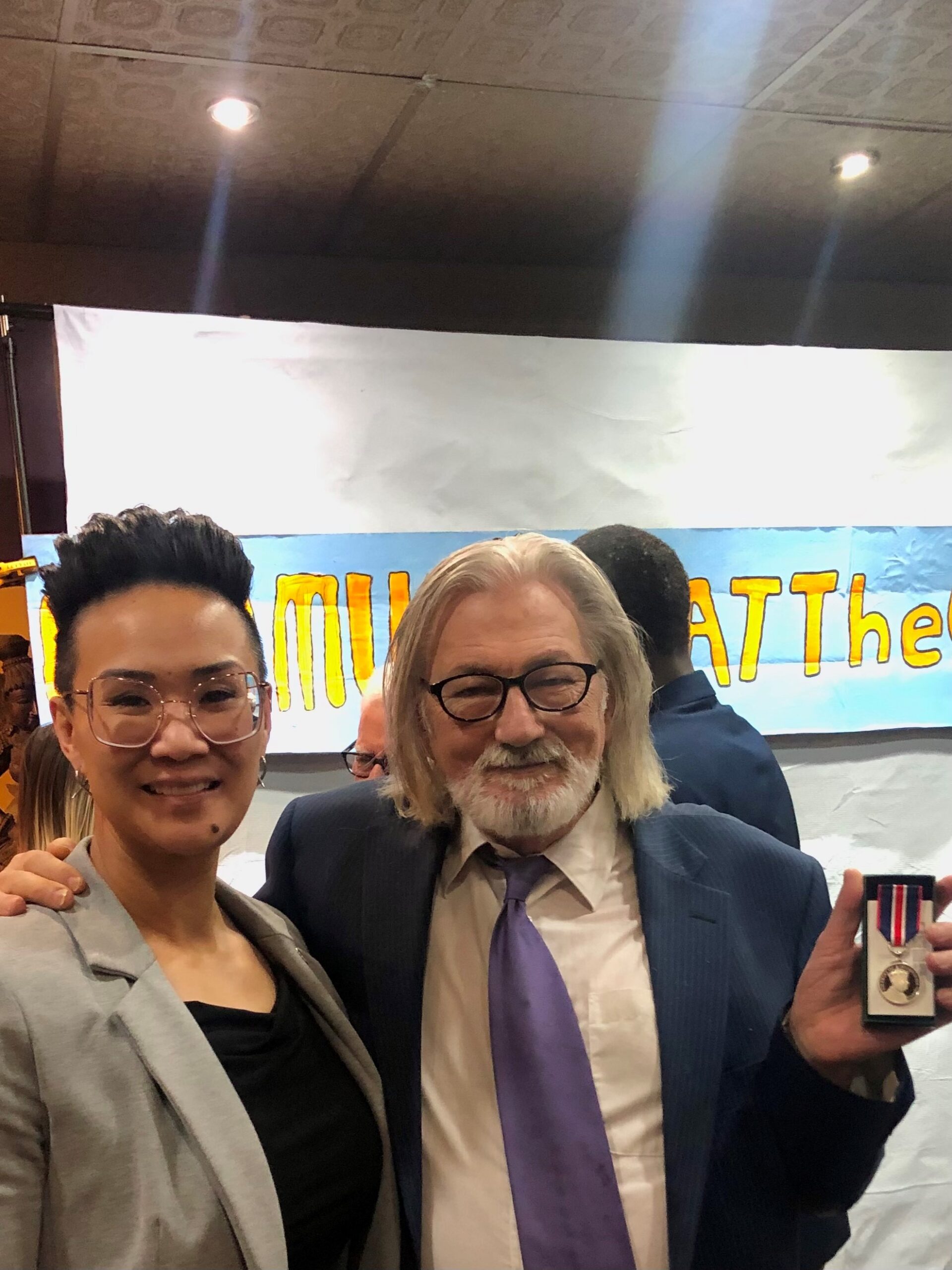The connection between housing and mental health

Subscribe to Catalyst
Subscribe to get our magazine delivered right to your inbox
Related Articles
Related Articles

Al Wiebe on the Winnipeg Foundation’s BeCause & Effect Podcast in May 2024.
Meet Al Wiebe: Born and raised in Winnipeg, Wiebe lost his job in advertising sales in 2009 and spent two and a half years without a home. He’s living in an apartment now and for more than a dozen years has been a tireless advocate for the importance of housing coupled with support. This is his story.
My dad was a hellfire-and-brimstone preacher. Very strict. My mom suffered from mental illness. My life as a child was not pleasant at all. I was a black sheep – I never felt like I belonged. I had to do a lot of things for myself. Maybe that independence helped me later.
My dad had a housing exterior company, doing siding and eavestroughs. I took it over when he went full-time into the ministry. I was 18. I went to the bank, bought a house and a truck, the whole works. Then I had my first kid a month later, then another one 11 months later. Talk about pressure.

King’s Coronation Medal
I wasn’t a good father or husband. I was focused on the business, and I was never there, so I didn’t have a great relationship with my kids.
I also struggled with depression for years. I was on and off anti-depressants. But I wasn’t on any medication for the five years before I lost my advertising job. I was too busy making lots of money. But when the company’s owner replaced me with his friend, I couldn’t handle the trauma. And I didn’t ask for help. I was a single guy, in my mid-50s, living a block away from work. My job was my life. I had no balance, no friends, and wasn’t really in contact with my family. I kind of lived in my own head.
Living in the car
I left the city for a while but ended up back in Winnipeg. I wanted to wallow in my misery. I had sold my Mercedes but still had a nice apartment. I just kind of ruminated and started thinking about suicide. I’m diabetic and stopped taking my drugs for that, which wasn’t good either.

Al Wiebe, at right, with Point Douglas Ward, Winnipeg, city councillor Vivian Santos in March 2025. Wiebe – a peer and community engagement trainer and housing director – was presented with the King’s Coronation Medal for his advocacy on ending homelessness and advancing lived experience leadership.
One day, I just walked away from the apartment with my bag. I’d eaten at a Vietnamese restaurant a few times and behind it there was an auto dealership that also had a scrapyard with cars they used for parts. I plunked myself down in the backseat of a ’64 Mercedes — I used to drive one so figured why not live in one for as long as I’m here. I thought I’d last for a night or two. But I spent 14 and a half months living in that car.
I’d be gone by seven in the morning and stay away until seven at night, because that’s when they closed. I didn’t use food banks or shelters or soup kitchens, none of that. I collected empty beer cans and change from people at drive-throughs. That’s how I existed. But I lost 32 pounds and became very ill. I developed pneumonia and neuropathy from my diabetes. I could hardly walk some days. I began to lose hope. I didn’t think I’d get out of there.
I went to the hospital three times and three times they turned me away because I was homeless. I was looking for psychiatric care and they treated me with disdain. They told me I had to “work on things.” Work on things? The only thing you can work on when you’re homeless is survival.
Signs of hope
A few days later, I went to another hospital, to the crisis stabilization unit, and then spent 24 hours laying low in my car. A couple days after that I went to St. Boniface Hospital. I was a real mess. When I finally saw a doctor, she changed the course of my life.
She said, “You’ve been everywhere and people either could not help you or would not help you, but today I’m going to help you. It’s like you’ve fallen off the edge of the world and don’t know where you are or who you are, and you don’t know how to help yourself. Starting today, you’re going to get better and get stronger. You’re going to start becoming the person you want to be.”
She gave me hope. She told me that I was carrying a lot of trauma and I had to start believing in myself. That someday, I would be able to help other people who were in this position.
After a month in the hospital, I spent 14 months in a shelter. I hated it. There were two killings while I was there. I got attacked and my ribs were broken. At times, I wanted to go back to the streets.
I finally found a home when I got an apartment across the street from the Ma Mawi Wi Chi Itata Centre after I got out from the shelter. It’s an Indigenous organization that does amazing service-provision work. It was a big green house, and I saw people milling around. So, I went in and asked if they needed any volunteers, because I needed purpose. I needed help myself, but I also needed something to do. They must have seen something in me. They allowed me to volunteer and, over a couple years, to take courses: suicide prevention, food handling, First Aid and CPR, non-violent crisis intervention. Class after class, workshop after workshop.
The things that make you a complete person
The greatest casualty of homelessness is a loss of self-respect and self-worth, dignity, and confidence. Everything that makes you a complete person and allows you to move forward. I lost all that in a big hurry, but every time I took another course, it was like I was opening a cupboard and putting in a jar of confidence, then another one, then another one. I become a more confident person slowly, not that swaggering, SOB advertising executive who could do anything. I was so arrogant in those days. But I began to feel better about things. I knew I was going somewhere. I started to feel that I could do more.
After two and a half years, I started working as a cook at a drop-in centre once a week. I was cooking lunch for 70 people. Then one of their case managers, whose job was to keep people in housing, quit. And they offered me a job. I hadn’t worked in five years. Two and half years of homelessness, two and a half years of recovery. I said, “Sure.”
Countering judgment and stigma
These days, I live in a one-bedroom apartment with a friend who I’m a caregiver for. I help run a housing first program and organize an annual human rights symposium. I do talks about homelessness and training sessions with people from all three levels of government, including local city councillors as well as police officers, firefighters, and paramedics. I talk to nursing students and hospital staff about poverty, stigma, and unconscious bias. “Are your judgements impeding your ability to give your best to the vulnerable?” Homeless people fill up emergency rooms, and they often treat people who are homeless in an inhumane way. Our health-care system doesn’t really understand the connections between homelessness and mental health. Our governments don’t, either.
Having an apartment is great, but the work gives me purpose, and I couldn’t have got here by myself. You can’t do anything without a home, that’s for sure. That’s why I’m big on housing first. You put somebody into housing, then you look after their needs. You can’t look after anybody’s needs on the street. And you can’t get by when 80 per cent of your income goes to housing.
People think that because you’ve spent time on the streets, you’ve lost something. In my case, I’ve gained so much wisdom. I’ve had a lot of success because I have lived experience. It helps you build trust. My experience gave me deep, deep empathy.
When you’re homeless, it exacerbates your mental illnesses. It compounds them by 10 times. Because there’s trauma just about every minute of every day. Because you don’t feel secure. But it’s not just housing. Having a place to sleep won’t make you healthy. You need a case manager. You need a counsellor. You need trauma-informed medical care. You might need to work on addictions. You need wraparound support. Otherwise, life could come crashing down on you again. Housing alone is not the answer. But it’s a big part of the answer.
Poverty can be just as traumatic as homelessness. People use so much energy every day and struggle so much, especially these days because of economic conditions. People are dropping from middle class into poverty — people who’ve never experienced poverty before — and people are dropping from poverty into homelessness. People really need access to the right services, because things are really difficult right now.
It’s rewarding to be helping keep people off the streets. Two years after I escaped homelessness, I came off my anti-depressants because I had a focus. That focus was other people. But for me, bridging the gap with my family is best thing about getting my life back together. Two of my children are in their 40s and one is 50 and we get along better than ever. They’ve all done really well for themselves. My daughter and I speak on a very cerebral level. My boys and I talk sports. One of my sons is in Winnipeg today for work and I’m going to see him for dinner tonight.
Did You Know?
- Roughly 60 percent of people who are homeless in Canada face mental health issues, according to a federal report that looked at 2020-2022 nationally coordinated point-in-time counts.
- According to the Homeless Hub online resource, mental illness can make you more susceptible to unemployment, poverty, social isolation and other challenges, all of which increase the risk of homelessness.
- Whether you are on the streets, in a shelter or some other liminal situation, the lack of stability and security can amplify psychological conditions.
- Access to safe and affordable housing, accompanied by a range of supports, is one of the most effective ways to end this cycle.
- A housing first approach is less expensive than public expenditures on health care, policing and other costs associated with homelessness, according to a CMAJ study.
Resource: Housing First in Canada
Author: As told to Dan Rubinstein, an Ottawa-based writer and editor who frequently writes about health issues.